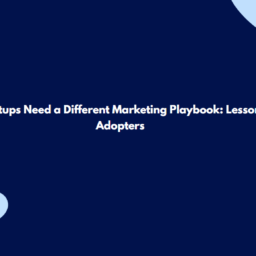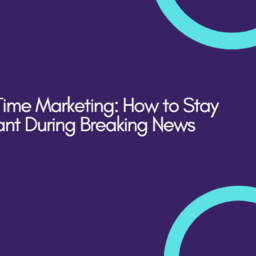Email marketing remains one of the most effective ways to reach your audience, drive engagement, and boost conversions. With numerous email marketing platforms available, choosing the right one for your business can be challenging. In this blog, we’ll compare the top email marketing platforms—Mailchimp, Constant Contact, Sendinblue, and HubSpot—to help you determine which one best suits your needs.
1. Mailchimp
Overview: Mailchimp is one of the most popular email marketing platforms, known for its user-friendly interface and robust features. It caters to small and medium-sized businesses looking for a versatile solution.
Key Features:
- Drag-and-Drop Editor: Easily create professional-looking emails with a drag-and-drop editor.
- Automation: Advanced automation features for sending personalized emails based on user behavior.
- Analytics: Detailed analytics and reporting to track the performance of your campaigns.
- Templates: A wide variety of customizable templates.
- Integrations: Integrates with numerous third-party apps, including e-commerce platforms, CRMs, and social media.
Pros:
- Intuitive interface, ideal for beginners.
- Comprehensive free plan for small businesses.
- Extensive automation capabilities.
Cons:
- Pricing can be high for larger lists.
- Limited functionality in lower-tier plans.
Best For: Small to medium-sized businesses looking for a user-friendly platform with robust automation and integration options.
2. Constant Contact
Overview: Constant Contact is known for its excellent customer support and ease of use, making it a favorite among small businesses and non-profits.
Key Features:
- Email Builder: Easy-to-use email builder with customizable templates.
- Event Management: Tools for managing events and creating invitations.
- Surveys and Polls: Built-in tools for conducting surveys and polls.
- Social Media Integration: Integrates with social media platforms for broader reach.
- List Management: Advanced list segmentation and management features.
Pros:
- Exceptional customer support and onboarding.
- User-friendly interface suitable for beginners.
- Strong event management features.
Cons:
- Limited automation capabilities compared to competitors.
- Higher pricing for advanced features.
Best For: Small businesses and non-profits that prioritize ease of use and customer support.
3. Sendinblue
Overview: Sendinblue offers a comprehensive suite of email marketing tools along with SMS marketing, making it a versatile option for businesses of all sizes.
Key Features:
- Email and SMS Marketing: Combine email and SMS campaigns for multi-channel marketing.
- Marketing Automation: Advanced automation features, including workflow creation.
- Transactional Emails: Send transactional emails such as order confirmations and password resets.
- Segmentation: Advanced contact segmentation for targeted campaigns.
- A/B Testing: Optimize your emails with A/B testing.
Pros:
- Affordable pricing with a pay-as-you-go option.
- Comprehensive automation and segmentation features.
- Multi-channel marketing capabilities.
Cons:
- The interface can be less intuitive for beginners.
- Limited template options compared to competitors.
Best For: Businesses of all sizes looking for an affordable and versatile email marketing solution with multi-channel capabilities.
4. HubSpot
Overview: HubSpot is a leading CRM platform that includes powerful email marketing tools as part of its suite. It’s ideal for businesses looking for an all-in-one marketing solution.
Key Features:
- CRM Integration: Seamless integration with HubSpot’s CRM for comprehensive customer management.
- Email Personalization: Advanced personalization features using CRM data.
- Automation: Sophisticated automation workflows for nurturing leads.
- Analytics: In-depth analytics and reporting tools.
- Templates: A wide range of customizable templates.
Pros:
- Integrated CRM and marketing tools in one platform.
- Advanced automation and personalization capabilities.
- Comprehensive analytics and reporting.
Cons:
- Higher pricing compared to standalone email marketing platforms.
- The steep learning curve for beginners.
Best For: Medium to large businesses seeking an integrated CRM and email marketing solution with advanced automation features.
Conclusion
Choosing the right email marketing platform depends on your specific needs, budget, and marketing goals. Here’s a quick summary to help you decide:
- Mailchimp: Ideal for small to medium-sized businesses looking for a user-friendly platform with robust automation and integration options.
- Constant Contact: Perfect for small businesses and non-profits that prioritize ease of use and customer support.
- Sendinblue: Suitable for businesses of all sizes seeking an affordable and versatile email marketing solution with multi-channel capabilities.
- HubSpot: Best for medium to large businesses looking for an integrated CRM and email marketing solution with advanced automation features.
By understanding the strengths and weaknesses of each platform, you can choose the one that best aligns with your business objectives and helps you achieve your email marketing goals.




